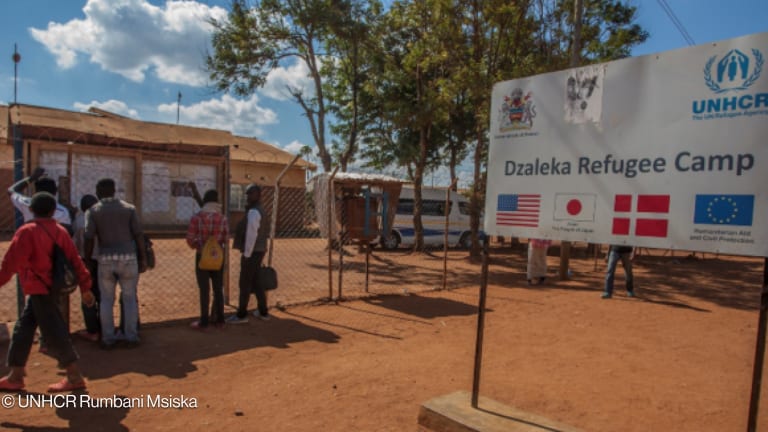
Each morning, the bulky, unwieldy vehicle navigates an uneven, rocky path that in some areas of Haiti is a common road. Only my seatbelt keeps me from hitting the roof as I make my way to the U.S. embassy in Port-au-Prince.
A newcomer to the country, I see each day during my journey a small remaining camp for Haitians displaced by the catastrophic 2010 earthquake. Living in temporary tent shelters, they, children among them, are still waiting for a new place to call home. Then, recently, I noticed that the camp was emptying.
Almost four years after the earthquake, 89 percent of Haiti’s 1.5 million internally displaced persons have left the tent camps for alternative housing options. Almost 75 percent of earthquake rubble has been removed. Security throughout the country has improved and, recognizing the importance of employment, the government is committed to attracting foreign investment, with agriculture, tourism and the apparel industry the most promising growth areas. Health indicators are up, with improvements in infant and child mortality rates and more public access to health services.
International donors — among them the U.S. Agency for International Development — have learned lessons along the way in Haiti in terms of how we can do better.
As the country leaves behind the era of post-earthquake relief and focuses now on longer-term development, USAID is striving to build the capacity of local organizations to lead and manage development initiatives.
This necessarily involves building public and private institutions so Haitians can lead and manage their own development. On our part, we are enhancing the capacity of the Ministry of Health to manage a national healthcare system using its own human and financial resources, so it will no longer be dependent on donors. Similarly, efforts are underway to build the financial and programmatic capacity of local NGOs to provide services and advocacy that are too often provided by international organizations. The country must also advance the rule of law, a prerequisite to the creation of durable institutions and economic growth.
Every USAID mission director’s goal is to help the host country one day reach a point when it no longer needs foreign economic assistance. Indeed, all donors and development organizations should be devoted to that goal. In Haiti, this will not happen overnight. But four years after the earthquake, Haiti remains a U.S. government priority to continue and improve our efforts to help Haitians building the opportunity and prosperity they are capable of and that they are so deserving.
Join the Devex community and access more in-depth analysis, breaking news and business advice — and a host of other services — on international development, humanitarian aid and global health.




